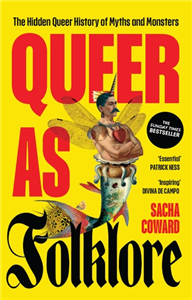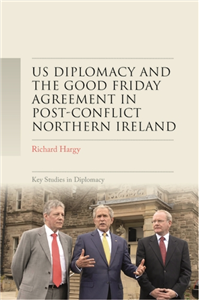Your Search Results
-
Speaking Tiger
Speaking Tiger is an independent publishing company based in New Delhi. Founded in September 2014, the company publishes a diverse list comprising quality fiction and non-fiction from South Asia and the rest of the world, with a strong emphasis on new voices.
View Rights Portal
-
Promoted Content2020
Audio Engineering
for special events techniciansin training and on the job
by Christoph Grzesinski. Founded by Dr. Volker Smyrek
We all know that audio engineering is more than just acronyms. But what do they all mean? This practical textbook is designed to meet the special needs of events technicians. The textbook stands out from the crowd because it is designed specifically with the university curriculum and professional needs in mind, making it not only an excellent companion in the classroom, but a useful reference for on the job as well. The author, himself an instructor for special events technicians, covers the ground from physical fundamentals of acoustics and electronics to setting up mixing consoles and sound systems, providing a multitude of useful tips without confusing the reader with extraneous details. A chapter on video technology rounds off the book. Sample calculations put the material in a practical context, and sample problems at the end of each chapter (with solutions in the appendix) help review what has been learned and inspire further thought. Entertaining guest essays provide a broader perspective.
-
Promoted ContentHumanities & Social SciencesMarch 2017
Travellers in Africa
British travelogues, 1850-1900
by Timothy Youngs
Works of travel have been the subject of increasingly sophisticated studies in recent years. This book undermines the conviction with which nineteenth-century British writers talked about darkest Africa. It places the works of travel within the rapidly developing dynamic of Victorian imperialism. Images of Abyssinia and the means of communicating those images changed in response to social developments in Britain. As bourgeois values became increasingly important in the nineteenth century and technology advanced, the distance between the consumer and the product were justified by the scorn of African ways of eating. The book argues that the ambiguities and ambivalence of the travellers are revealed in their relation to a range of objects and commodities mentioned in narratives. For instance, beads occupy the dual role of currency and commodity. The book deals with Henry Morton Stanley's expedition to relieve Emin Pasha, and attempts to prove that racial representations are in large part determined by the cultural conditions of the traveller's society. By looking at Joseph Conrad's Heart of Darkness, it argues that the text is best read as what it purports to be: a kind of travel narrative. Only when it is seen as such and is regarded in the context of the fin de siecle can one begin to appreciate both the extent and the limitations of Conrad's innovativeness.
-
 Trusted Partner
Trusted Partner
-
 Trusted Partner
Trusted Partner
-
 Trusted Partner
Trusted Partner
-
 Trusted Partner
Trusted Partner
-
 Trusted Partner
Trusted Partner
-
 Trusted Partner
Trusted Partner
-
 Trusted Partner
Trusted Partner
-
 Trusted Partner
Trusted Partner
-
 Trusted Partner
Humanities & Social SciencesJuly 2018
Trusted Partner
Humanities & Social SciencesJuly 2018A 'special relationship'?
Harold Wilson, Lyndon B. Johnson and Anglo-American relations 'at the summit', 1964-68
by Jonathan Colman
-
 Trusted Partner
Humanities & Social SciencesDecember 2025
Trusted Partner
Humanities & Social SciencesDecember 2025Queer as folklore
The hidden queer history of myths and monsters
by Sacha Coward
A celebration of queer history like you've never seen it before. Queer as folklore travels across centuries and continents to reveal the unsung heroes and villains of storytelling, magic and fantasy. Featuring images from archives, galleries and museums around the world, each chapter investigates the queer history of different mythic and folkloric characters, both old and new. Leaving no headstone unturned, Sacha Coward takes you on a wild ride through the night from ancient Greece to the main stage of RuPaul's Drag Race, visiting cross-dressing pirates, radical fairies and the graves of the 'queerly departed' along the way. Queer communities have often sought refuge in the shadows and created safe spaces in underworlds. But these forgotten narratives tell stories of resilience that deserve to be heard. Join any Pride march and you will see a glorious display of papier-mâché unicorn heads, drag queens in mermaid tails and more fairy wings than you can shake a trident at. These are not just accessories: they are queer symbols with historic roots. To truly understand who queer people are today, we must confront the twisted tales of the past.
-
 Trusted Partner
January 2023
Trusted Partner
January 2023Time Travel Academy 2. Sekunde der Entscheidung
by Stefanie Hasse, Julia K. Stein, Melanie Korte
Time Travel Academy II. Auf dem Hover in ein neues Zeitreise-Abenteuer. Endlich wieder Schule! Max, Valentina, Sakura, Ravi und die Robokatze sind zurück auf der Time Travel Academy. Ihre neue Mission: eine Reise in ihre Wunschzeit. Ob Max in der Vergangenheit endlich etwas über seine verschollene Schwester Stella herausfinden kann? Schon bald tauchen unheimliche Agenten auf, die alles daransetzen, die Rückkehr der Kinder in die Gegenwart zu verhindern. Und Max hat einen unglaublichen Verdacht: Hat etwa die Academy selbst etwas mit Stellas Verschwinden zu tun? Welche Rolle spielt der Chaos Club dabei? Das zweite actionreiche Abenteuer auf der Time Travel Academy. Noch nie war Zeitreisen spannender als mit Max, Valentina, Sakura und Ravi! Im Band 2 der rasanten Time Travel-Reihe geht die Suche nach Stella, Max' verschwundener Schwester, weiter. Spricht Jungen und Mädchen ab 10 Jahren an, die Action und einen lockeren Schreibstil lieben. Die packende Story im besonderen Setting eines HighTech Internats wird dich begeistern! Mit futuristischen, schwarz-weißen Illustrationen von Melanie Korte.
-
 Trusted Partner
Humanities & Social SciencesJune 2025
Trusted Partner
Humanities & Social SciencesJune 2025Taking travel home
The souvenir culture of British women tourists, 1750–1830
by Emma Gleadhill
In the late eighteenth-century, elite British women had an unprecedented opportunity to travel. Taking travel home uncovers the souvenir culture these women developed around the texts and objects they brought back with them to realise their ambitions in the arenas of connoisseurship, friendship and science. Key characters include forty-three-year-old Hester Piozzi (Thrale), who honeymooned in Italy; thirty-one-year-old Anna Miller, who accompanied her husband on a Grand Tour; Dorothy Richardson, who undertook various tours of England from the ages of twelve to fifty-two; and the sisters Katherine and Martha Wilmot, who travelled to Russia in their late twenties. The supreme tourist of the book, the political salon hostess Lady Elizabeth Holland, travelled to many countries with her husband, including Paris, where she met Napoleon, and Spain during the Peninsular War. Using a methodology informed by literary and design theory, art history, material culture studies and tourism studies, the book examines a wide range of objects, from painted fans "of the ruins of Rome for a sequin apiece" and the Pope's "bless'd beads", to lava from Vesuvius and pieces of Stonehenge. It argues that the rise of the souvenir is representative of female agency, as women used their souvenirs to form spaces in which they could create and control their own travel narratives.
-
 Trusted Partner
October 2023
Trusted Partner
October 2023From India to Germany:What My Father's Journey Tells Usabout Migration and the Kindness ofStrangers
by Sunita Sukhana
— An extraordinary story of migration — Contemporary history of the 70s and backgrounds to India, Afghanistan, Iran, Turkey, Bulgaria, the former Yugoslavia, the GDR and the Federal Republic of Germany He was the son of the Sikh priest, a successful 400-meter runner and, eventually, a migrant. In 1979, Bagicha Singh turned his back on his homeland and set off with a head full of dreams on the long, turbulent overland journey from India to Germany. It was the year the Soviet Union invaded Afghanistan and the Islamic Revolution raged in Iran. A year whose aftermath continues to shape the world to this day. More than 40 years later, his daughter tells the story of Bagicha's adventurous journey. The result is a touching document on origin, contemporary history, and the meaning of migration.
-
 Trusted Partner
August 2022
Trusted Partner
August 2022Time Travel Academy 1. Auftrag jenseits der Zeit
by Stefanie Hasse, Julia K. Stein, Melanie Korte
Die Zeitreise beginnt: Geh mit Max auf die Time Travel Academy! Kein Handy, kein Tablet. Stattdessen Heute-basteln-wir-mit-Klopapierrollen. Wie gern würde der zwölfjährige Max sein Leben gegen das eines anderen eintauschen. Seins ist nämlich verdammt langweilig. Bis er eines Tages die goldschimmernde Einladung zur Time Travel Academy erhält – und mit ihr die Nachricht, dass er dort seine spurlos verschwundene Schwester wiederfinden kann. Time Travel, also Zeitreisen – wie cool ist das denn?! Und in einem Internat leben! Für Max zählt nur noch eins: Er muss unbedingt auf die TTA. Und schon steckt er mitten in einem rasanten Abenteuer auf der wohl coolsten Academy aller Zeiten, voller Technik-Nerds und witziger neuer Freund*innen. Da willst du doch garantiert dabei sein. Wer weiß, vielleicht hast du ja auch das Zeitreise-Gen in dir. Leg los mit Band 1 der Time Travel Academy: Noch nie war Zeitreisen cooler. Die Lieblingsthemen Internat und Zeitreise in einer rasanten Action-Reihe für Jungs und Mädchen ab 10. Start der lässigen Fantasy Kinderbücher in lustig lockerem Erzählton – Fortsetzung folgt. Witziges und zugleich spannendes Abenteuer durch Raum und Zeit. Max, ein 12-jähriger, typisch schusseliger, herrlich unperfekter Held. Computerfreaks und Chaosclub – eine Superheld*innen-Academy für auserwählte Kids.
-
 Trusted Partner
The ArtsJanuary 2019
Trusted Partner
The ArtsJanuary 2019Derek Jarman
by Rowland Wymer
This book gives detailed and original critical readings of all eleven of Derek Jarman's feature-length films, arguing that he occupies a major and influential place in European and world cinema rather than merely being a cult figure. It places particular emphasis on the importance of Renaissance art and literature for Jarman, and emphasises his interest in Jungian psychology. Wymer shows how Jarman used his films to take his audience with him on an inner journey in search of the self, whilst remaining fully aware of the dangers of such a journey. Making substantial use of Jarman's unpublished papers as well as all his published works, Wymer argues that the films are orientated towards a much wider audience than is often supposed. They are addressed to anyone, of whatever gender or sexuality, who is prepared to go on a journey in search of him or her self and to become Jarman's accomplice in 'the dream world of the soul'.
-
 Trusted Partner
Teaching, Language & ReferenceMay 2025
Trusted Partner
Teaching, Language & ReferenceMay 2025US diplomacy and the Good Friday Agreement in post-conflict Northern Ireland
by Richard Hargy
Richard Haass and Mitchell Reiss, as autonomous diplomats in the George W. Bush State Department, were able to alter US intervention in Northern Ireland and play critical roles in the post-1998 peace process. Their contributions have not been fully appreciated or understood. The restoration of Northern Ireland's power-sharing government in 2007 was made possible by State Department-led intervention in the peace process. There are few references to Northern Ireland in work examining the foreign policy legacy of the George W. Bush presidency. Moreover, the ability to control US foreign policy towards the region brought one of George W. Bush's Northern Ireland special envoys into direct diplomatic conflict with the most senior actors inside the British government. This book will uncover the extent of this fall-out and provide original accounts on how diplomatic relations between these old allies became so fraught.
-
 Trusted Partner
Humanities & Social SciencesMarch 2017
Trusted Partner
Humanities & Social SciencesMarch 2017Air empire
British imperial civil aviation, 1919–39
by Gordon Pirie, Andrew Thompson, John M. MacKenzie
Air empire is a fresh study of civil aviation as a tool of late British imperialism. The first pioneering flights across the British empire in 1919-20 were flag-waving adventures that recreated an era of plucky British maritime exploration and conquest. Britain's development of international air routes and services was approved, organised and celebrated largely in London; there was some resistance in and beyond the subordinate colonies and dominions. Negotiating the financing and geopolitics of regular commercial air service delayed its inception until the 1930s. Technological, managerial and logistical problems also meant that Britain was slow into the air and slow in the air. Propaganda concealed underperformance and criticism. The study uses archival sources, biographies, industry magazines and newspapers to chronicle the disputed progress toward air empire. The rhetoric behind imperial air service offers a glimpse of late imperial hopes, fears, attitudes and style. Empire air service had emotional appeal and symbolic value, but disappointed in practice.
-
 Trusted Partner
The ArtsMarch 2021
Trusted Partner
The ArtsMarch 2021Queer exceptions
Solo performance in neoliberal times
by Stephen Greer
Queer exceptions is a study of contemporary solo performance in the UK and Western Europe that explores the contentious relationship between identity, individuality and neoliberalism. With diverse case studies featuring the work of La Ribot, David Hoyle, Oreet Ashery, Bridget Christie, Tanja Ostojic, Adrian Howells and Nassim Soleimanpour, the book examines the role of singular or 'exceptional' subjects in constructing and challenging assumed notions of communal sociability and togetherness, while drawing fresh insight from the fields of sociology, gender studies and political philosophy to reconsider theatre's attachment to singular lives and experiences. Framed by a detailed exploration of arts festivals as encapsulating the material, entrepreneurial circumstances of contemporary performance-making, this is the first major critical study of solo work since the millennium.






















